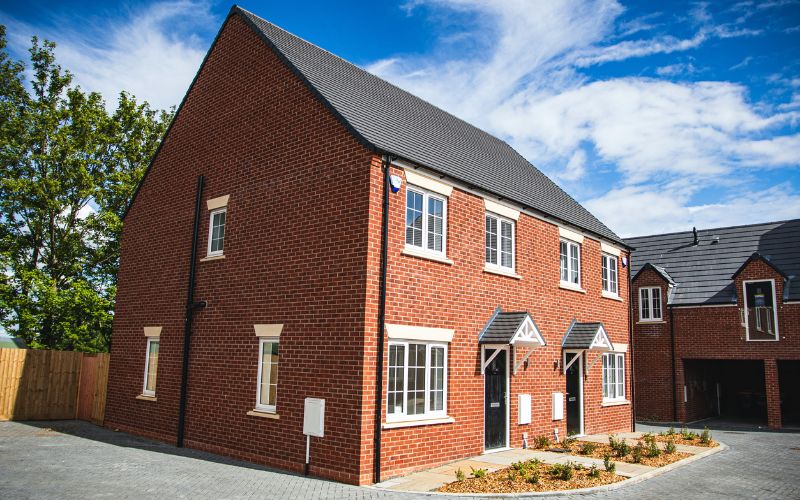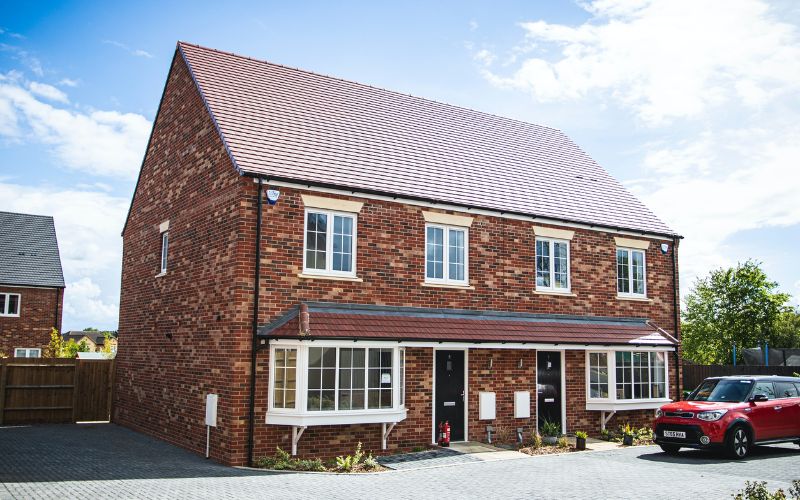The housing market has undergone significant shifts over the past few years, influenced by factors such as population growth, economic conditions, and policy changes.
So far this year, housing output has remained the subject of intense scrutiny as stakeholders assess the extent to which various trends are impacting the market.
What's been trending?
One of the most pressing issues is the ongoing imbalance between housing supply and demand.
The UK has been grappling with a shortage of affordable homes which has resulted in extreme hikes in property prices and limited options for potential buyers and renters.
Recognising the urgency of addressing the housing crisis, Government and private sector collaborations have led to increased efforts to build affordable homes.
These initiatives aim to cater to lower-income groups and first-time buyers, providing them with access to secure housing options.
Sustainable and eco-friendly housing remains at the forefront of both the Government and Developer’s plans which reflects the growing trend of environmentally conscious living.
There has also been an emphasis on incorporating renewable energy sources, energy-efficient technologies, and green spaces into new housing developments that will only become more prominent over time.
More recently, there has been an influx of urban regeneration projects aiming to transform neglected areas into vibrant communities.

Challenges for H2
The shortage of skilled labour within the construction industry continues to pose a significant hurdle to increasing housing output.
Factors such as an aging workforce, Brexit-related migration changes, and limited interest amongst young people have still contribute to this challenge.
Additionally, land scarcity, zoning regulations, and competing land use interests can limit the potential for new construction projects, especially in high-demand urban areas.
However, the Government has been called upon to introduce a retrofitting campaign, backed by a number of high-end property organisations, that believe the UK could massively benefit from repurposing brownfield sites.
New housing developments can strain existing infrastructure, including transportation, healthcare, and education facilities.
Local authorities will need to carefully plan and invest in supporting infrastructure to ensure that new communities are well-equipped to handle population growth.
Going forward
The adoption of modern construction techniques, such as modular construction, AI, and 3D printing, has the potential to increase the efficiency and speed of building new homes. These methods could help address the labour shortage while expediting housing delivery.
The integration of technology and data into urban planning and housing development processes can lead to more informed decision-making.
Predictive analytics and data-driven insights could aid in identifying optimal locations for new housing projects and designing spaces that cater to residents' needs.
The Government's commitment to addressing the housing crisis through policy changes, funding, and collaboration with private sector stakeholders remains a driving force.
Continued support for affordable housing initiatives and sustainable development projects could contribute significantly to increased housing output.
As the country navigates the complexities of a changing labour market, technology advancements, and evolving urban landscapes, the collaborative efforts of government, industry, and communities will be crucial in shaping housing output going forward.

Who are we?
Our team of Chartered Building Surveyors work closely with property owners, local authorities, landlords, and social housing providers across London and the South Coast to proactively navigate a changing horizon. From ensuring new projects are delivered on time and in budget, to delivering EPC and MEES upgrades on behalf of landlords.
Read more about our solutions here:
Reinstatement Cost Assessments
Planned Preventative Maintenance
Alternatively, email us at enquiries@sillencehurn.co.uk or call our Southampton team on 02380 014786 or London at 020 3143 2128
If you're looking for the next steps in your career why not check out our latest opportunities and see if we align with you and your values!





